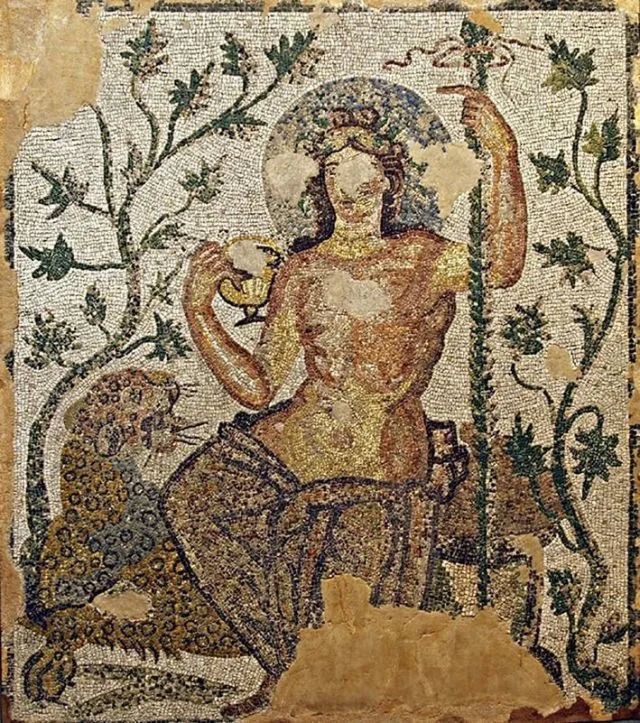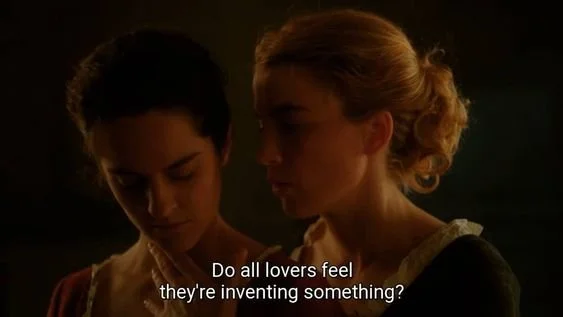The Dionysian Fifth House
There is a place in your birth chart of profound fecundity — unfurling and lush. Here we find what brings you joy. This is a place of longing and touching. Not only between humans but also between us and the more-than-human world. This place is called the Fifth House. It is where Venus rejoices. So many of her favorite things are found in this house: pleasure, sex, delight, play, games, gifts, beauty, and creativity. It is called The House of Good Fortune. Yet how many of us struggle with our creativity? How many of us think we’re not creative in the first place? How many of us hold shame and pain around pleasure? How many of us feel disconnected from even small joys? From play?
For the last few months, I have spent a lot of time in other people's Fifth Houses. Over and over, clients have had questions about this place even if they didn't know its name. They were yearning for connection. In grief, in disorientation. Sometimes in sheer curiosity. They rarely said, "Let's talk about the Fifth House." They said, “I don't get this planet,” or "People say this is a 'good placement' but I don't feel it" or “This planet is everywhere in my life but because it’s everywhere I can’t really see it.” And invariably that planet was the ruler of the Fifth House or in the Fifth House.
Here, Dionysus can help.
But I need to explain something first. Dionysus as "the god of wine" is an oversimplification of this deity. I remember when I received Dale Pendell’s Pharmakopoeia. I skimmed the table of contents and went straight to Vitis vinifera, the grapevine, assuming I’d find Dionysus there. But I was wrong. Pendell rightly placed Dionysus in the previous chapter — with Saccharomyces cerevisiae, yeast. Dionysus is the god of fermentation. He was the god of mead well before he was the god of wine. Yeast is a fungus that divides itself and in doing so, makes more. Dionysus is bread rising. The mystery of overflowing life. Life that desires itself and makes and makes.
Dionysus is the god of zoë (Kerényi, 1976), a Greek word for the verdant animation of all things. This is life not specific to any individual organism but flowing through everything. Wild, uncontained, multiplying, desirous, lateral-growing, indestructible life. We see this in Dionysus's role as a vegetal god. In his myths, he is like the land. He lives and dies but always returns. This is also what makes Dionysus an utterly non-hierarchical, mycelial being who revels in life itself — branching and branching off into shapeshifting collections of desirous reaching.
Part of Dionysus’s story as life-indestructible is the story of his destruction. Dionysus is the dismembered god — ripped apart by the Titans only to be reborn. A Dionysian approach to the Fifth House includes the way we dismember ourselves in pleasure, the way the body seems to shapeshift in joy, how we feel ourselves come apart in creative acts, in desire, and then come back together as something different, something changed. A Dionysian approach to The House of Good Fortune must acknowledge that even here we find stories of waste, breaking down, and death. Here, we attend to a metabolic orchestra and ask what might be growing in our compost piles.
Dionysus's consort Ariadne, a goddess in her own right but humanized in retellings, is known for her dancing grounds. These grounds mirrored the labyrinth below them — the labyrinth that trapped her half-brother Asterion, the Minotaur. Ariadne deserves so much more space than I can give her here but for now, I'll say that Ariadne's dancing-ground-labyrinth is a compelling image for the Fifth House. It is a place of revelry and joy but also mazes and monsters.
In Matter & Desire: An Erotic Ecology, Andreas Weber writes, “The living world is a constant conversion of one thing into another, leading to inexorable new growth” (2014). This erotic, creative, fermenting, rotting, remaking Dionysian force animates the Fifth. Yes, the Fifth can be about human children but also life spilling into books, pottery, protests, a garden, a homemade card, a spontaneous eruption of divine praise, a possibility that wasn’t there before. When we make art, when we have sex, when we want and crave and long, and enjoy and take pleasure in what delights us for its own sake — we are in collaboration with others, human and the more-than-human. Together, we become life’s leaven.
So after months of the Fifth House coming up in sessions over and over and over again, I’ve gotten the hint. I’m offering an hour-long birth chart reading totally focused on the Fifth House. This house is vital. It makes life worth living and gives us the capacity to imagine what the world could be.
This offering is for everyone. If you’ve worked with me before, welcome back! If you never have, I’d love to see you. Fifth House stellium folks, you're invited. Folks with "empty" Fifth Houses, come on in. You can be a total beginner to astrology or an astrologer yourself.
Bring your reveling devotions. Bring your longings for the Earth, the divine, for someone else’s body, for your own. Bring me your life-overflowing into other beings. Bring your “but I’m not creative” stories. Bring your compost heap. Bring your fermentations. We’ll dance and wander through that labyrinth together.
Resource and References
I suspect that this work with Dionysus and the Fifth House is going to be a larger project. It wants to grow. I'm already indebted to the work of Sophie Strand who has written beautifully on Dionysus as a fungal god and connected some dots for me. I'm so excited for her new book The Flowering Wand: Rewilding the Sacred Masculine to come out. Pre-order her book here.
Avelar, H. & Ribeiro, L. (2010). On The Heavenly Spheres: A Treatise on Traditional Astrology. American Federation of Astrologers: Tempe, AZ.
George, D. (2022). Ancient Astrology In Theory and Practice: A Manual of Traditional Techniques, Volume Two. Rubedo Press: Auckland, New Zealand.
Kerényi, C. (1976). Dionysos: Archetypal Image of Indestructible Life. Princeton University Press: Princeton, NJ.
Pendell, D. (2010). Pharmakopoeia: Plant Powers, Poisons & Herbcraft. North Atlantic Books: Berkeley, CA.
Schrei, J. (2021, June). On Trauma and the Vegetation Gods. Emerald Podcast. https://open.spotify.com/episode/5rt3KyFrHbxVPEmhtfYRQ0?si=4dd7c7a20b6a4f57&nd=1
Sheldrake, M. (2020). Entangled Life: How Fungi Make Our Worlds, Change Our Minds & Shape Our Futures. Random House: New York, NY.
Strand, S. (2022). “Jesus is a Fungal God.” https://sophiestrand.substack.com/p/jesus-is-a-fungal-god
Weber, Andreas (2014). Matter & Desire: An Erotic Ecology. Chelsea Green Publishing: White River Junction, VT.



